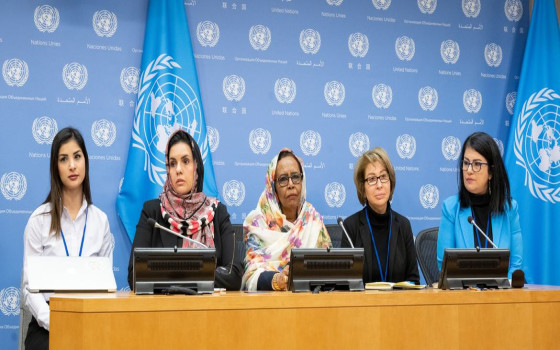
Violence and "inherent discrimination" are at the top of the challenges that impede the advancement of Arab women

- Europe and Arabs
- Saturday , 25 March 2023 15:0 PM GMT
Brussels: Europe and the Arabs
Multi-faceted challenges facing Arab women in various aspects of political, economic and security life, in addition to the repercussions resulting from wars and conflicts that afflict a number of countries in the region. , which concluded its work a week ago, is a platform for raising many issues of great importance to women in the Arab region.
On the sidelines of the session, the Karama Civil Society Network held a press conference, in which a number of women activists from various Arab countries participated, during which they talked about the challenges they face and the priorities of their work.
UN News spoke to a number of these activists to learn about the most important issues they brought to the discussions of the Commission on the Status of Women, which is the largest annual gathering in the United Nations devoted to discussing issues of gender equality and women's empowerment.
The right to life is a priority for Palestinian women
Although this year's meetings focused on the role of technology in bridging the gender equality gap, Palestinian activist Amani Aruri believes that the priority for women in her country is the right to life and securing protection for them, and then comes the demand for equal participation.
Aruri said that this indicates the vast differences regarding feminist priorities. She added:
Although women in Palestine have a special situation that is completely different from all regions and countries, they share with their counterparts in other regions many challenges and obstacles that prevent them from reaching decision-making positions and effective political participation, including discrimination that is inherent and rooted in policies, legislation, and laws, and societal discrimination that is practiced Against women, in addition to the stereotype against women, specifically against young women.” She touched on what she described as the systematic method of excluding Palestinian women from the decision-making table and Palestinian reconciliation.
With regard to violence against women, Ms. Aruri touched on the phenomenon of femicide, which she said was increasing during the period 2021-2022. "There were more than 55 cases of killings from various backgrounds, but we know that because of the societal culture, the perpetrator is not held accountable as it should be. Because there are always excuses for men. There is always an excuse for the permissibility of women's blood. And there is an excuse for violence against women. Above all, Palestinian women suffer." - on a daily basis - from systematic violations that prevent them from accessing justice, basic services, education and health.
And she stressed the need to ensure the right to movement for Palestinian women: "We suffer on a daily basis and live in constant fear when we move from our homes to places of work or to places of study. We are constantly worried about our children even when we move. Now there is also violence by settlers against Palestinians." This happens in all places, in villages, in cities, in all roads. It is done with the protection of the occupation soldiers. Where is the accountability for these perpetrators? Where is the accountability for those who violate the rights of the Palestinians? Also, systematic and double violence is practiced against Palestinian women and girls as well, using societal masculinity.
The Palestinian activist also touched on the issue of Palestinian female prisoners in the Israeli occupation prisons:
"Currently, Palestinian female prisoners are deprived of their most basic rights, which is the right to clean water. Hot water for bathing. The right to have edible bread. Visits are prohibited by the families. Violence, beatings and abuse are used inside the occupation prisons."
Ms. Arouri said that she is certain that the international community is aware of the suffering of women and girls in Palestine, "but we do not have an active movement. There is condemnation. Concern is expressed. But where are the measures taken by policy and decision-makers at the level of the United Nations and at level of governments to stop these systematic violations?
A significant decline in women's issues in Iraq
From Iraq, we spoke with Mrs. Susan Aref, the President and Founder of the Women Empowerment Organization in Iraq and the President of the Women's Network for Peace.
Mrs. Aref refers to what she described as a "great regression" in women's issues, as women still live in "tragic conditions", and they had the greatest share of suffering resulting from wars, conflicts and the economic blockade of Iraq, which prevented women from accessing their basic rights, although as he put it
She explained that Iraq has a quota system that recognizes the participation of women by no less than 25 percent, and in the Kurdistan region by no less than 30 percent.
The Iraqi parliament, despite the participation of 97 women in it, did not succeed in passing the law against domestic violence, according to Mrs. Suzan Aref, who said that half of the women parliamentarians stood against the law. She described this as evidence that the presence of women is not sufficient if it is not based on a sound system and competencies. The Iraqi activist drew attention to some statistics that she said confirm her statement regarding the decline of women's issues, pointing to the increase in cases of gender-based violence, especially sexual violence. Which became a "warning", as she put it.
"There is an official statistic by the Supreme Judicial Council in Iraq stating that there are 4,000 divorce cases for girls under the age of 15. These divorce cases are only for marriages that were officially concluded in the courts because many of these marriages take place outside the courts and are not registered. We are talking about four Thousands of cases, but how many of the other 4,000 divorces took place without registration?
The Iraqi activist asked, "What is the fate of a girl who has not reached the age of 15 and is divorced or has a child?" She added that there are official statistics from the Ministry of Planning confirming the existence of 25.5 percent of marriages that take place under the age of 18. The lady says Aref said that all these figures "confirm the decline and the slavery of women."
As for women's participation in the labor market, it is 10 percent compared to 68 percent for men, and this indicates the great difference between women's and men's participation in the labor market, according to Mrs. Susan.
Although the Women, Peace and Security Agenda emphasizes the need for women's participation, Mrs. Susan says that Iraqi women are excluded from work and suffer from the issue of child marriage.
There is also the phenomenon of killing women, which the Iraqi activist described as "has become a dangerous phenomenon", pointing to the large statistics of the so-called "honor killings".
She explained that women are not protected and went on to say:
"As long as there is no active participation of women, then the issue of protecting women cannot be achieved, because women's participation means their ability to influence decisions and policies that protect women's issues."
Iraq has a national plan for the women's, peace and security agenda in accordance with Security Council Resolution 1325, but this plan is insufficient and needs political, financial and legal support and transparency, according to Ms. Susan Aref, head of the Women's Network for Peace.
"The Crime of the Age": Corruption exacerbates the suffering of Lebanese women
Women in Lebanon are not in the best condition as they suffer from the repercussions of corruption that has pervaded "all political and judicial levels," according to activist Brigitte Libian, director of Justice Without Borders in Lebanon.
Ms. Brigitte described the Beirut port explosion as a "crime of the age", which resulted in the deaths of more than 100 people, the injury of 6,000 others and the displacement of more than 3,000 families.
She said that accountability has not been achieved so far, noting that women have been subjected to a lot of violence and deteriorating economic conditions in the aftermath of the explosion, and went on to say:
"Women in Lebanon have suffered from discrimination, and we have reached a stage where we can say that we have stopped distinguishing between women and men. Discrimination is now between women themselves: there are two classes of women, a poor and destitute class and a rich class that is able to access all services."
She explained that families are no longer able to secure milk for their children because the payment process has become in dollars. As for cancer patients, they do not have the ability to buy medicines. And she continued by saying:
"A woman came to us complaining of violence from her husband. We offered to give her legal advice so that she could be protected. But she said that she does not need legal action, she just needs a food ration."
With regard to the issue of Lebanese women's political participation, the Lebanese activist said that politicians only use women's issues as a means to achieve political ends in elections, but they do not fulfill their promises regarding support for legal legislation related to women's rights. “There is an absence of political will,” as she put it:
"If we talk about Security Council Resolution 1325 on women, security and peace, I believe that the resolution must be women, justice, security and peace because in the absence of justice it is impossible to achieve security, it is impossible to achieve peace and it is impossible for any citizen to live in dignity."
And she stressed the need for the victims of the Beirut port explosion to obtain justice, as well as the victims of all crimes, because the victims cannot achieve justice with a small handful of aid, but rather with accountability and punishment, as she put it.



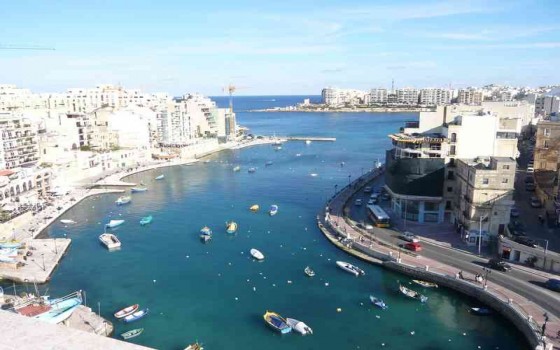



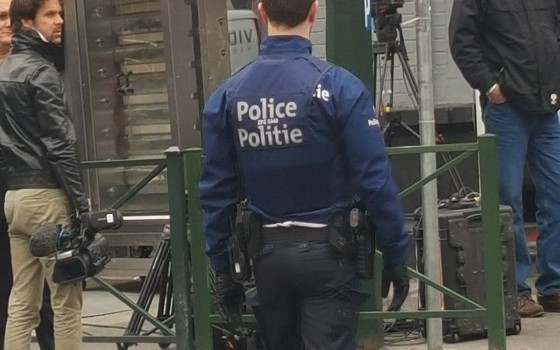
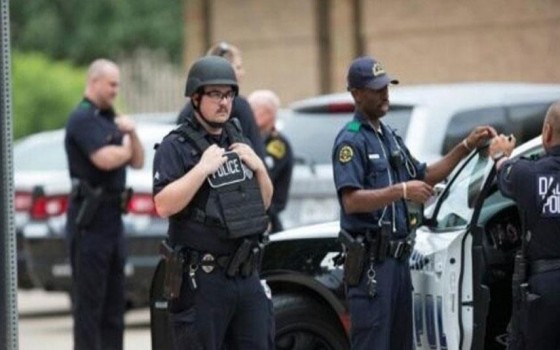
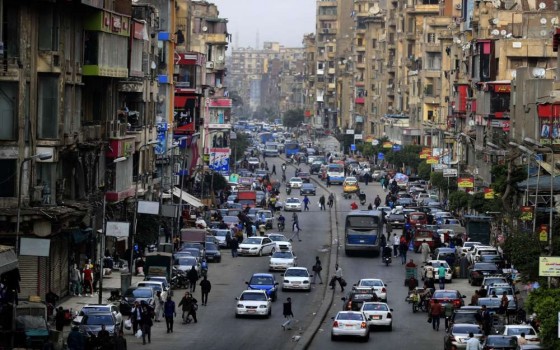
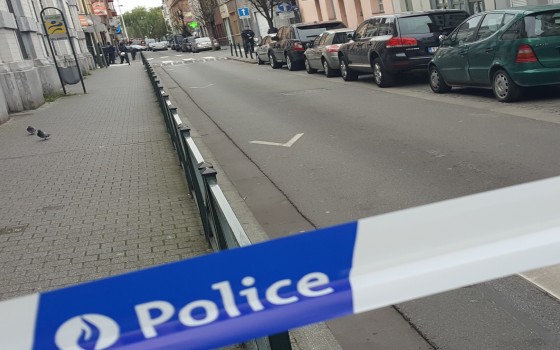

No Comments Found